Speakers

Anatasia S. Kim, Ph.D.
Professor of Clinical Psychology, The Wright Institute
Anatasia S. Kim, Ph.D., is a tenured Professor at The Wright Institute in Berkeley, CA. She
received her B.A. in Psychology from UC Berkeley and her Ph.D. in Clinical Psychology with a
minor in Developmental Psychology from UCLA. She is a National Ronald McNair Scholar and
the recipient of a number of awards including APA Minority Fellowship, Okura Mental Health
Fellowship, and APAGS Guardian of Psychology Award.
In addition to graduate teaching, she has a private practice specializing in treating patients with anxiety disorders, depression, and neurodiversity using Cognitive Behavioral Therapy, Attachment Theory, Family Systems, and Buddhist Psychology.
She also provides Diversity Equity and Inclusion (DEI) consultation and training across various sectors including higher education, health care, corporations, management, tech, government, and community agencies. In recent years, she served as President of the Alameda County Psychological Association, Chair of California Psychological Association (CPA) Immigration Task Force, CPA’s state Diversity Delegate, and APA Division 31 Diversity Leadership Development Program.
Dr. Kim is the lead author of It’s Time to Talk (and Listen): How to Have Constructive Conversations About Race, Class, Sexuality, Ability, and Gender in a Polarized World (New Harbinger, 2019) and Clinical Psychology Internship for Underrepresented Students: An Inclusive Approach Toward Higher Education (Routledge, 2021). For more information about Dr. Kim, please check out: www.anatasiakim.com.
received her B.A. in Psychology from UC Berkeley and her Ph.D. in Clinical Psychology with a
minor in Developmental Psychology from UCLA. She is a National Ronald McNair Scholar and
the recipient of a number of awards including APA Minority Fellowship, Okura Mental Health
Fellowship, and APAGS Guardian of Psychology Award.
In addition to graduate teaching, she has a private practice specializing in treating patients with anxiety disorders, depression, and neurodiversity using Cognitive Behavioral Therapy, Attachment Theory, Family Systems, and Buddhist Psychology.
She also provides Diversity Equity and Inclusion (DEI) consultation and training across various sectors including higher education, health care, corporations, management, tech, government, and community agencies. In recent years, she served as President of the Alameda County Psychological Association, Chair of California Psychological Association (CPA) Immigration Task Force, CPA’s state Diversity Delegate, and APA Division 31 Diversity Leadership Development Program.
Dr. Kim is the lead author of It’s Time to Talk (and Listen): How to Have Constructive Conversations About Race, Class, Sexuality, Ability, and Gender in a Polarized World (New Harbinger, 2019) and Clinical Psychology Internship for Underrepresented Students: An Inclusive Approach Toward Higher Education (Routledge, 2021). For more information about Dr. Kim, please check out: www.anatasiakim.com.
Session

Jude Bergkamp, Psy.D.
Core Faculty, Clinical Psychology Department, Antioch University Seattle
Dr. Jude Bergkamp is the program chair of the clinical psychology program at Antioch University Seattle, as well as clinical faculty in the Department of Psychiatry and Behavioral Sciences at the University of Washington.
He serves as the Chair of the Ethnic and Racial Diversity Committee within the National Council of Schools and Programs of Professional Psychology (NCSPP). In addition, he serves on the APA’s BEA/BPA Task Force on Doctoral Competencies in Health Service Psychology.
He was trained in forensic and neuropsychology and has worked in the Washington State Department of Corrections, and currently as a forensic evaluator at the Center for Forensic Services at Western State Hospital.
His current research interests include the decolonization of psychology, the exploration of social privilege as the flip side of oppression, and the role social privilege plays in psychotherapy.
He serves as the Chair of the Ethnic and Racial Diversity Committee within the National Council of Schools and Programs of Professional Psychology (NCSPP). In addition, he serves on the APA’s BEA/BPA Task Force on Doctoral Competencies in Health Service Psychology.
He was trained in forensic and neuropsychology and has worked in the Washington State Department of Corrections, and currently as a forensic evaluator at the Center for Forensic Services at Western State Hospital.
His current research interests include the decolonization of psychology, the exploration of social privilege as the flip side of oppression, and the role social privilege plays in psychotherapy.
Sessions

Stephen Lally, Ph.D., ABPP
Department Faculty, Clinical Psychology, The Chicago School of Professional Psychology, Washington DC
Dr. Lally received his board certification in forensic psychology from the American Board of Professional Psychology.
He is a Past-president of the District of Columbia Psychology Association and the National Council of Schools and Programs of Professional Psychology (NCSPP).
He served on APA's Committee for Professional Practice and Standards (COPPS) where he assisted in the revision of a number of practice guidelines. He has presented and published in the areas of assessment, ethics, and forensic psychology.
Dr. Lally has a forensic practice in the Washington, DC, area.
He is a Past-president of the District of Columbia Psychology Association and the National Council of Schools and Programs of Professional Psychology (NCSPP).
He served on APA's Committee for Professional Practice and Standards (COPPS) where he assisted in the revision of a number of practice guidelines. He has presented and published in the areas of assessment, ethics, and forensic psychology.
Dr. Lally has a forensic practice in the Washington, DC, area.
Sessions

Anu Orebiyi, MA, LMHC, MA
Pipeline Internship Programs' Supervisor, The Wright Institute
Anu Orebiyi, M.A., is a mental health practitioner, who received her B.S. in Biology with a Psychology minor at Truman State University in 2006, her M.A. in Counseling Psychology at The Seattle School of Theology and Psychology in 2009, and her M.A. in Clinical Psychology at the Wright Institute in 2021.
Anu is a licensed mental health counselor in WA State, and she is currently pursuing a Doctor of Psychology (Psy.D.) in Clinical Psychology at the Wright Institute in Berkeley, CA. Anu is passionate about working within/alongside marginalized communities and in increasing equitable access to mental health supports both to and within marginalized communities.
As a result throughout her 13+ years working as a clinician, Anu has worked with a wide variety of individuals within a variety of settings including working in a sub-acute facility with kids experiencing significant trauma and behavioral difficulties, in multiple school settings, in-home both with kids with autism spectrum disorder and their families and with individuals 55+ struggling with depression, in an agency providing specialized case management for African American elders who were 65+, and in the Wright Institute's In-house Clinic. In addition, Anu worked alongside the University of Washington’s Health Promotion Research Center in researching the efficacy and dissemination of the in-home depression counseling program across diverse populations.
This year, in addition to her work as practicum student within the Center for the Vulnerable Child (CVC)'s Support to Enhance Early Development (SEED) Program, Anu works as an employee within the Wright Institute’s Pipeline to Advanced Degrees Programs (WIPAD) specifically helping to oversee their Psychology Internship Program (PIP), a high school internship for BIPOC students and/or first generation college students, who are juniors and seniors and who are interested in psychology as a career.
Anu is a licensed mental health counselor in WA State, and she is currently pursuing a Doctor of Psychology (Psy.D.) in Clinical Psychology at the Wright Institute in Berkeley, CA. Anu is passionate about working within/alongside marginalized communities and in increasing equitable access to mental health supports both to and within marginalized communities.
As a result throughout her 13+ years working as a clinician, Anu has worked with a wide variety of individuals within a variety of settings including working in a sub-acute facility with kids experiencing significant trauma and behavioral difficulties, in multiple school settings, in-home both with kids with autism spectrum disorder and their families and with individuals 55+ struggling with depression, in an agency providing specialized case management for African American elders who were 65+, and in the Wright Institute's In-house Clinic. In addition, Anu worked alongside the University of Washington’s Health Promotion Research Center in researching the efficacy and dissemination of the in-home depression counseling program across diverse populations.
This year, in addition to her work as practicum student within the Center for the Vulnerable Child (CVC)'s Support to Enhance Early Development (SEED) Program, Anu works as an employee within the Wright Institute’s Pipeline to Advanced Degrees Programs (WIPAD) specifically helping to oversee their Psychology Internship Program (PIP), a high school internship for BIPOC students and/or first generation college students, who are juniors and seniors and who are interested in psychology as a career.
Session

Melissa Kennedy, Ph.D.
Teaching Faculty, Clinical Psychology Department, Antioch University Seattle
Dr. Melissa Kennedy is a full-time faculty member in the clinical psychology program at Antioch University Seattle (AUS).
Additionally, she maintains a private psychology practice, specializing in women’s mental health across the lifespan.
As co-director of the Decoloniality and Social Privilege Awareness Institute (DSPAI) at AUS, Dr. Kennedy’s current research interests include decoloniality within the academy, internalized and colonial identities, and the intersection of coloniality and intergenerational, somatic-based trauma.
Additionally, she maintains a private psychology practice, specializing in women’s mental health across the lifespan.
As co-director of the Decoloniality and Social Privilege Awareness Institute (DSPAI) at AUS, Dr. Kennedy’s current research interests include decoloniality within the academy, internalized and colonial identities, and the intersection of coloniality and intergenerational, somatic-based trauma.
Session

Radhika Krishnamurthy, Psy.D., ABAP
Professor, School of Psychology, Florida Institute of Technology
Session

Cynthia Schneiderer, M.A.Ed.
Graduate Student, Antioch University Seattle
Cynthia Scheiderer is a graduate student pursuing the doctor of clinical psychology degree at Antioch University Seattle (AUS). She is a member of the Decoloniality and Social Privilege Awareness Institute (DSPAI) at AUS, and her research interests include professional identity formation and training models in clinical psychology. Before beginning her clinical psychology training she earned an M.A.Ed. degree in adult education and training and practiced as a facilitator, trainer, and educator with nonprofits, grantmakers, and government. During this career she worked on social justice in a variety of settings including child welfare and foster care, marriage equality, and health care. She is a facilitative mediator certified by the King County Dispute Resolution Center and a lead mediator in King County District Court, Small Claims.
Session

Jack Krizizke
First-year Student, Antioch University Seattle
Jack Krizizke is a first-year PsyD student in the clinical psychology program at Antioch University Seattle (AUS). At the University of Hawai’i he conducted research on multiculturalism, race essentialism, and implicit bias. Jack’s current research interests include the development of personality disorder traits in adolescents, the efficacy of treatments in mitigating personality disorder traits, and the intersections of personality disorder treatment and social justice.
Session

Gilbert Newman, Ph.D.
NCSPP President / Vice President Academic Affairs, The Wright Institute
Dr. Newman is the vice president for academic affairs at the Wright Institute. His clinical training began in 1973 with the Philadelphia Association in London, England, where he spent two years working in innovative residential settings under the tutorial instruction of the eminent anthropologist, Francis Huxley, and with the supervision and guidance of several existential-phenomenological psychotherapists including, R. D. Laing.
In 1977, he became the founding assistant director of Burch House, Inc., a residential alternative psychiatric facility in New Hampshire serving people who were acutely psychotic, suicidal, or suffering with other serious mental illness. Moving to California to attend the Wright Institute, Dr. Newman trained at the Wright Institute Clinic and at the Superior Court, Alameda County, Family Court Services. Between 1989 and 1996 he was employed at the Institute for Labor and Mental Health providing assessment and psychotherapy services for physically and psychologically disabled workers. He also worked for the UC Berkeley, School of Public Health where he was a Section Editor for the California Wellness Guide.
Dr. Newman is clinically active as a member of the medical staff at Contra Costa County Health Services volunteering four hours per week at a primary care clinic providing direct patient care. Incorporating contemporary multicultural perspectives, he has expertise in crisis intervention, addiction, trauma, serious mental illness, and relational problems. He works with individuals, groups, and couples. Dr. Newman has had extensive experience in program development, evaluation, consultation and accreditation. Included among his many program development projects are the Integrated Health Psychology Training Program, the Wright Institute Assessment Service, the Sanctuary Project, and the California Psychology Internship Council of which he was the founding and former executive director.
Dr. Newman’s current interests include the growing phenomenon of family secrets being revealed through genetic testing, services for older adults, primary care psychology, graduate psychology education, and health service psychology political advocacy. Dr. Newman is active in the American Psychological Association (APA) and recently completed a six-year term as a member of the Commission on Accreditation and continues serving as the regional coordinator for legislative advocacy related to psychology education and training; he has also served in a myriad of other leadership roles at APA including Chair of the Board of Educational Affairs, and Chair of the Committee of State Leaders. He is a member of the National Register of Health Service Psychologists and is a lifetime member of the California Psychological Association, of which he was the President in 2006.
Dr. Newman is the recipient of numerous honors and awards. They include the Education Advocacy Distinguished Service Award from APA in recognition of his long standing personal and professional commitment to gaining federal funding for psychology education and training, as well as his efforts to raise student awareness of the value of advocacy to psychology; the Karl F. Heiser Presidential Award from APA’s Division 31 recognizing his legislative advocacy work for state and federal laws; and the Silver Psi from CPA recognizing his outstanding service to the Association.
A dedicated grandfather, father, husband, friend and co-worker, Dr. Newman enjoys his work, family time, golf, and gardening. He is the son of a Jewish immigrant whose family barely escaped Eastern Europe following the 1919 pogrom. Dr. Newman is the first in his family of origin to attend a 4-year college and to attain an advanced degree.
In 1977, he became the founding assistant director of Burch House, Inc., a residential alternative psychiatric facility in New Hampshire serving people who were acutely psychotic, suicidal, or suffering with other serious mental illness. Moving to California to attend the Wright Institute, Dr. Newman trained at the Wright Institute Clinic and at the Superior Court, Alameda County, Family Court Services. Between 1989 and 1996 he was employed at the Institute for Labor and Mental Health providing assessment and psychotherapy services for physically and psychologically disabled workers. He also worked for the UC Berkeley, School of Public Health where he was a Section Editor for the California Wellness Guide.
Dr. Newman is clinically active as a member of the medical staff at Contra Costa County Health Services volunteering four hours per week at a primary care clinic providing direct patient care. Incorporating contemporary multicultural perspectives, he has expertise in crisis intervention, addiction, trauma, serious mental illness, and relational problems. He works with individuals, groups, and couples. Dr. Newman has had extensive experience in program development, evaluation, consultation and accreditation. Included among his many program development projects are the Integrated Health Psychology Training Program, the Wright Institute Assessment Service, the Sanctuary Project, and the California Psychology Internship Council of which he was the founding and former executive director.
Dr. Newman’s current interests include the growing phenomenon of family secrets being revealed through genetic testing, services for older adults, primary care psychology, graduate psychology education, and health service psychology political advocacy. Dr. Newman is active in the American Psychological Association (APA) and recently completed a six-year term as a member of the Commission on Accreditation and continues serving as the regional coordinator for legislative advocacy related to psychology education and training; he has also served in a myriad of other leadership roles at APA including Chair of the Board of Educational Affairs, and Chair of the Committee of State Leaders. He is a member of the National Register of Health Service Psychologists and is a lifetime member of the California Psychological Association, of which he was the President in 2006.
Dr. Newman is the recipient of numerous honors and awards. They include the Education Advocacy Distinguished Service Award from APA in recognition of his long standing personal and professional commitment to gaining federal funding for psychology education and training, as well as his efforts to raise student awareness of the value of advocacy to psychology; the Karl F. Heiser Presidential Award from APA’s Division 31 recognizing his legislative advocacy work for state and federal laws; and the Silver Psi from CPA recognizing his outstanding service to the Association.
A dedicated grandfather, father, husband, friend and co-worker, Dr. Newman enjoys his work, family time, golf, and gardening. He is the son of a Jewish immigrant whose family barely escaped Eastern Europe following the 1919 pogrom. Dr. Newman is the first in his family of origin to attend a 4-year college and to attain an advanced degree.
Sessions

Cheryl Grills, Ph.D.
Director, Psychology Applied Research Center, Loyola Marymount University
Dr. Cheryl Grills is a Clinical Psychologist with a current emphasis in Community Psychology on the faculty of Loyola Marymount University (LMU) for the past 34 years, she is a Professor of Psychology, Director of their Psychology Applied Research Center, and President’s Professor in the College of Liberal Arts.
Dr. Grills is a national past President of The Association of Black Psychologists and currently serves on the CA Reparations Taskforce, appointed by the Governor of CA. She also serves as Commissioner and Vice Chair of Los Angeles County’s Sybil Brand Commission for Institutional Inspections, which focuses on conditions and practices within county jails and correctional facilities.
She was Co-Executive Director of the Los Angeles County Blue Ribbon Commission on Child Protection whose work led to significant reforms in LA County’s approach to child welfare, including establishment of an Office of Child Protection. Dr. Grills is research principal investigator on several multi-site projects addressing mental health disparities, social determinants of health, positive youth development, and COVID’s impact on communities of color nationally.
Her work in the area of racial stress focuses on research and training associated with racism, racial stress, implicit bias and the development of community-based self-help models to address the negative effects of racism on people of African ancestry in the US and globally. Dr. Grills’ research interests, publications, and projects include African Psychology, African-centered models of treatment engagement with African-Americans; community psychology; community mental health; community organizing as a public health strategy; and program evaluation with community-based organizations engaged in social justice efforts, community change and prevention on a host of social issues.
Dr. Grills is a national past President of The Association of Black Psychologists and currently serves on the CA Reparations Taskforce, appointed by the Governor of CA. She also serves as Commissioner and Vice Chair of Los Angeles County’s Sybil Brand Commission for Institutional Inspections, which focuses on conditions and practices within county jails and correctional facilities.
She was Co-Executive Director of the Los Angeles County Blue Ribbon Commission on Child Protection whose work led to significant reforms in LA County’s approach to child welfare, including establishment of an Office of Child Protection. Dr. Grills is research principal investigator on several multi-site projects addressing mental health disparities, social determinants of health, positive youth development, and COVID’s impact on communities of color nationally.
Her work in the area of racial stress focuses on research and training associated with racism, racial stress, implicit bias and the development of community-based self-help models to address the negative effects of racism on people of African ancestry in the US and globally. Dr. Grills’ research interests, publications, and projects include African Psychology, African-centered models of treatment engagement with African-Americans; community psychology; community mental health; community organizing as a public health strategy; and program evaluation with community-based organizations engaged in social justice efforts, community change and prevention on a host of social issues.
Session
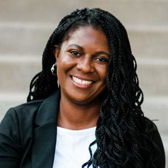
Apryl Alexander, Psy.D.
Associate Professor, Graduate School of Professional Psychology, University of Denver
Dr. Apryl Alexander is an Associate Professor in the Graduate School of Professional Psychology at the University of Denver. She serves as Director of the Denver FIRST Juvenile Justice Project, an OJJDP grant funded program providing evidence-based, culturally informed, and gender-sensitive trauma treatment for justice-involved girls. Her research and clinical work interests include violence and victimization, human sexuality, sexual offending, and trauma-informed and culturally informed practice.
She is an award-winning researcher and her work has been published in several leading journals, including the Journal of Forensic Psychology Practice, Child Maltreatment, Journal of Child Sexual Abuse, and Sexual Abuse. Most recently, she received the 2021 Lorraine Williams Greene Award for Social Justice from Division 18 (Psychologists in Public Service) of the American Psychological Association. Dr. Alexander has been interviewed by numerous media outlets, including The New York Times, USA Today, and NBC Nightly News, about her research and advocacy work.
She is an award-winning researcher and her work has been published in several leading journals, including the Journal of Forensic Psychology Practice, Child Maltreatment, Journal of Child Sexual Abuse, and Sexual Abuse. Most recently, she received the 2021 Lorraine Williams Greene Award for Social Justice from Division 18 (Psychologists in Public Service) of the American Psychological Association. Dr. Alexander has been interviewed by numerous media outlets, including The New York Times, USA Today, and NBC Nightly News, about her research and advocacy work.
Session
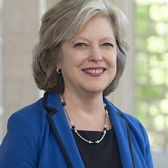
Shelly Smith-Acuña, Ph.D.
Dean, Graduate School of Professional Psychology, and Director of Strategic Health Initiatives, University of Denver
Shelly Smith-Acuña, Ph.D., is the Dean of the Graduate School of Professional Psychology (GSPP) at the University of Denver (DU), where she has served in this position since 2012 and filled several roles over the last 29 years. At DU she holds leadership positions on the University’s Women’s Leadership Council, the Chancellor’s Diversity Advisory Council, the Community and Values Initiative, and the Health Initiative.
Dean Smith-Acuña’s areas of research and teaching include couple and family therapy, with a particular emphasis on gender, culture, and multigenerational issues. Her scholarship focuses on the application of psychological systems theory to improve the human condition, as seen in her book, Systems Theory in Action.
Dean Smith-Acuña’s areas of research and teaching include couple and family therapy, with a particular emphasis on gender, culture, and multigenerational issues. Her scholarship focuses on the application of psychological systems theory to improve the human condition, as seen in her book, Systems Theory in Action.
Session
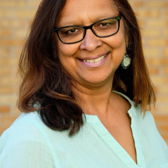
Lavita Nadkarni, Ph.D.
Professor and Associate Dean, Graduate School of Professional Psychology, University of Denver
Lavita Nadkarni is the Associate Dean at the University of Denver’s Graduate School of Professional Psychology, where she teaches and supervises graduate students who conduct forensic assessments for community members who are legally involved and underserved. She received her Master’s degree in Forensic Psychology from City University-John Jay College of Criminal Justice, and her doctorate in Clinical Psychology from Adelphi University’s Derner Institute of Advanced Psychological Studies.
Dr. Nadkarni is a well regarded scholar (one of the co-Editors of the Principles of Forensic Report Writing and Handbook of Multicultural Counseling Competencies). Dr. Nadkarni has served as the Associate Editor and Editor of the Psychotherapy Bulletin, (2008-2013) and Associate Editor for Professional Psychology: Research and Practice (2018 to present).
Dr. Nadkarni has been involved with the National Council of Schools and Programs of Professional Psychology since 2001, and served as President of the Council. She was one of the Steering committee members for the CCTC 2020: Social responsiveness in Health Service Psychology Education and Training, and the lead facilitator for the Social Justice and Advocacy tool kit module.
Dr. Nadkarni is a licensed psychologist whose clinical and research interests include clinical psychology education and training, mentoring, diversity, and forensic issues related to immigration, and other civil and criminal related matters.
Dr. Nadkarni is a well regarded scholar (one of the co-Editors of the Principles of Forensic Report Writing and Handbook of Multicultural Counseling Competencies). Dr. Nadkarni has served as the Associate Editor and Editor of the Psychotherapy Bulletin, (2008-2013) and Associate Editor for Professional Psychology: Research and Practice (2018 to present).
Dr. Nadkarni has been involved with the National Council of Schools and Programs of Professional Psychology since 2001, and served as President of the Council. She was one of the Steering committee members for the CCTC 2020: Social responsiveness in Health Service Psychology Education and Training, and the lead facilitator for the Social Justice and Advocacy tool kit module.
Dr. Nadkarni is a licensed psychologist whose clinical and research interests include clinical psychology education and training, mentoring, diversity, and forensic issues related to immigration, and other civil and criminal related matters.
Sessions
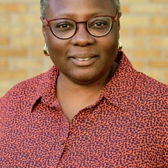
Terri Davis, Ph.D.
Associate Professor and Director, PsyD Program, Graduate School of Professional Psychology, University of Denver
Terri M. Davis, PhD, is PsyD Program Director at the University of Denver Graduate School of Professional Psychology. As program director, Terri addresses classroom management, navigates evolving stances on academic freedom, and responds to student complaints and evaluations of instructors and supervisors.
Terri mediates when either students or faculty are offended, hurt, and confused by class readings, presentations, or discussions. In some instances, she empowers students to talk directly to faculty about concerns and questions regarding pedagogy and strongly-held beliefs. At other times, she advocates for students and facilitates meetings between students and faculty.
Terri mediates when either students or faculty are offended, hurt, and confused by class readings, presentations, or discussions. In some instances, she empowers students to talk directly to faculty about concerns and questions regarding pedagogy and strongly-held beliefs. At other times, she advocates for students and facilitates meetings between students and faculty.
Session

Travis Heath, Ph.D.
Associate Professor, Graduate School of Professional Psychology, University of Denver
Travis Heath, Ph.D., is a licensed psychologist and serves an Associate Professor at the University of Denver. He is the Co-Director of the International Disaster Psychology: Trauma and Global Mental Health graduate program as well as the Director of Diversity, Equity, and Inclusion for the Graduate School of Professional Psychology.
Past work he’s been involved with looked at shifting from a multicultural approach to counseling to one of cultural democracy that invites people to heal in mediums that are culturally near. His most recent work involves incorporating the work of Black abolitionist scholars into psychotherapy, community healing, and uprising. His writing has focused on the use of rap music in narrative therapy, working with persons entangled in the criminal injustice system in ways that maintain their dignity, narrative practice stories as pedagogy, a co-created questioning practice called reunion questions, and community healing strategies.
He is currently co-authoring the first book on Contemporary Narrative Therapy with David Epston and Tom Carlson. He has been fortunate to run workshops and speak in Australia, Canada, Denmark, Hong Kong, India, New Zealand, Norway, United Kingdom, and United States.
Past work he’s been involved with looked at shifting from a multicultural approach to counseling to one of cultural democracy that invites people to heal in mediums that are culturally near. His most recent work involves incorporating the work of Black abolitionist scholars into psychotherapy, community healing, and uprising. His writing has focused on the use of rap music in narrative therapy, working with persons entangled in the criminal injustice system in ways that maintain their dignity, narrative practice stories as pedagogy, a co-created questioning practice called reunion questions, and community healing strategies.
He is currently co-authoring the first book on Contemporary Narrative Therapy with David Epston and Tom Carlson. He has been fortunate to run workshops and speak in Australia, Canada, Denmark, Hong Kong, India, New Zealand, Norway, United Kingdom, and United States.
Session

Randall C. Wyatt, Ph.D.
Director of Professional Training, California School of Professional Psychology, Alliant International University
Dr. Wyatt is a clinical psychologist, associate professor, and Director of Professional Training in the clinical psychology doctoral program at the California School of Professional Psychology, San Francisco at Alliant International University.
He is core faculty in the PsyD program and Director of Professional Training of the PsyD and PhD program. Dr. Wyatt teaches graduate courses in ethics, practice management for psychotherapists, and spirituality and psychotherapy.
He is current chair of the Clinical Training Committee of NCSPP and Board Member and Past Chair of BAPIC. Dr. Wyatt maintains a clinical practice in Oakland, California focused on trauma, sports psychology, couples therapy, law enforcement and fire personnel assessment and has directed counseling centers focused on integration of spirituality and psychotherapy.
He is core faculty in the PsyD program and Director of Professional Training of the PsyD and PhD program. Dr. Wyatt teaches graduate courses in ethics, practice management for psychotherapists, and spirituality and psychotherapy.
He is current chair of the Clinical Training Committee of NCSPP and Board Member and Past Chair of BAPIC. Dr. Wyatt maintains a clinical practice in Oakland, California focused on trauma, sports psychology, couples therapy, law enforcement and fire personnel assessment and has directed counseling centers focused on integration of spirituality and psychotherapy.
Sessions

Ryan Sharma, Psy.D., ABPP
Associate Professor, Director of Clinical Training, California Lutheran University
Psychologist and associate professor Ryan Sharma has been mentoring students through higher education for over 14 years, teaching classes in professionalism, consultation, and clinical supervision.
He recently wrote and published his book on The Unwritten Rules of Professional Etiquette: How to Build a Positive Reputation in Graduate School.
In his role as the director of clinical training at California Lutheran University, he helps students develop their professional identity so that they can be successful working alongside seasoned clinicians. He has a private practice using approaches involving integrating mindfulness and acceptance skills.
He is board certified by the American Board of Behavioral and Cognitive Psychology. Dr. Sharma is also a contract psychologist for a local fire department and specializes in working with first responders and firefighters.
He recently wrote and published his book on The Unwritten Rules of Professional Etiquette: How to Build a Positive Reputation in Graduate School.
In his role as the director of clinical training at California Lutheran University, he helps students develop their professional identity so that they can be successful working alongside seasoned clinicians. He has a private practice using approaches involving integrating mindfulness and acceptance skills.
He is board certified by the American Board of Behavioral and Cognitive Psychology. Dr. Sharma is also a contract psychologist for a local fire department and specializes in working with first responders and firefighters.
Session
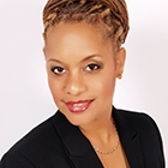
Cheryll Rothery, Psy.D., ABPP
Chair, Center for Professional Psychology, Professor of Psychology, Director of Clinical Training, Chestnut Hill College
Session
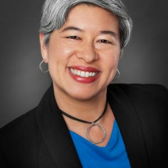
Tania Israel, Ph.D.
Professor, Department of Counseling, Clinical, and School Psychology, University of California, Santa Barbara
Tania Israel is a Professor of Counseling Psychology at the University of California, Santa Barbara and a Fellow of the American Psychological Association. Dr. Israel’s award-winning book, Beyond Your Bubble: How to Connect Across the Political Divide, Skills and Strategies for Conversations That Work (APA, 2020) grew out of the skill-building workshop that she developed and delivered to hundreds of participants following the 2016 election. It draws on her strengths as a psychologist and community collaborator to prepare people to engage in dialogue across political disagreement.
Dr. Israel has facilitated educational programs and difficult dialogues about a range of topics, including abortion, law enforcement, religion, and sexual orientation. Her honors include 2019 Congressional Woman of the Year (CA 24th District), Asian and Pacific Islander Heritage Award for Excellence in Mental Health from the California Asian & Pacific Islander Legislative Caucus, and Emerging Leader Award from the APA Committee on Women in Psychology.
To learn more, visit taniaisrael.com.
Dr. Israel has facilitated educational programs and difficult dialogues about a range of topics, including abortion, law enforcement, religion, and sexual orientation. Her honors include 2019 Congressional Woman of the Year (CA 24th District), Asian and Pacific Islander Heritage Award for Excellence in Mental Health from the California Asian & Pacific Islander Legislative Caucus, and Emerging Leader Award from the APA Committee on Women in Psychology.
To learn more, visit taniaisrael.com.
Session

Kathleen A. Gathercoal, Psy.D.
Interim Director, Graduate Psychology Department, George Fox University
Kathleen Gathercoal is a developmental Psychologist who serves as the Director of
Research in the George Fox University PsyD program.
Research in the George Fox University PsyD program.
Session

Amber Nelson, Psy.D.
Assistant Professor, Clinical Psychology Department, George Fox University
Amber Nelson is a Clinical Psychologist who serves as Associate Director of Equity & Inclusion in the George Fox University PsyD program.
Sessions

Aundrea Paxton, Psy.D.
Assistant Professor, Clinical Psychology Department, George Fox University
Aundrea Paxton is a licensed clinical psychologist who serves as Assistant Professor in the George Fox University PsyD program.
Session

Daniel Rodriguez, Psy.D.
Assistant Professor, Clinical Psychology Department, George Fox University
Daniel Rodriguez is a licensed clinical psychologist who serves as Assistant Professors in the George Fox University PsyD program.
Session

Michael J. Vogel, Psy.D.
Assistant Professor, Clinical Psychology Department, George Fox University
Mike Vogel is a clinical psychologist who serves as the Director of Integration in the George Fox University PsyD program
Session

David Castro-Blanco, Ph.D., ABPP
Associate Professor of Psychology, Department of Counseling and Clinical Psychology, Medaille College
Dave Castro-Blanco is an Associate Professor in the PsyD. Program in Clinical Psychology at Medaille College in Buffalo, NY, where he has taught since 2018. He received his Ph.D. in Clinical Psychology from St. John’s University in New York and has been involved in psychology education and training for more than 20 years.
He has been professionally active as a contributing editor and manuscript reviewer for numerous journals and has also served as an accreditation site visitor and site visit chair.
He holds the Diploma in Clinical Psychology from the American Board of Professional Psychology (ABPP) and as a Latino psychologist, has been particularly concerned with and active in promoting the increasing involvement of people of color in the profession. His particular areas of specialization are Clinical Child and Adolescent psychology and the study and treatment of anxiety disorders.
He has been professionally active as a contributing editor and manuscript reviewer for numerous journals and has also served as an accreditation site visitor and site visit chair.
He holds the Diploma in Clinical Psychology from the American Board of Professional Psychology (ABPP) and as a Latino psychologist, has been particularly concerned with and active in promoting the increasing involvement of people of color in the profession. His particular areas of specialization are Clinical Child and Adolescent psychology and the study and treatment of anxiety disorders.
Sessions

David Sacks, Psy.D., ABPP
Professor of Clinical Psychology, The Chicago School of Professional Psychology, Washington DC
David Sacks is a Professor of Clinical Psychology at The Chicago School of Professional Psychology, Washington, DC campus, and teaches Psychodynamic Intervention, Existential and Humanistic Intervention, History and Systems of Psychology, the Psychology of Pandemics, and Practicum Seminars.
He has a PsyD degree from Rutgers University and is board-certified in clinical psychology.
He has a PsyD degree from Rutgers University and is board-certified in clinical psychology.
Session
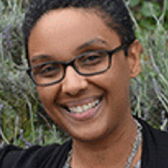
Konjit Page, Ph.D.
Doctoral Faculty, Clinical Psychology Program, Fielding Graduate University
Session

David Sitzer, Ph.D.
Associate Professor, The Chicago School of Professional Psychology, Los Angeles
David I. Sitzer, Ph.D., is an Associate Professor with The Chicago School of Psychology, Los Angeles, and Chair of the Clinical Psychology Department.
He received his Ph.D. in Clinical Psychology from Central Michigan University (CMU) after completing an internship in clinical neuropsychology at Duke University Medical Center, focusing on neuropsychological assessment, rehabilitation, and cognitive behavioral therapy.
He completed a fellowship at the University of California, San Diego (UCSD), Division of Geriatric Psychiatry, focusing on neuropsychological assessment and the improvement of everyday functioning among older adults and people with severe mental illness.
Dr. Sitzer currently serves as the Chair of the National Council of Schools and Programs of Professional Psychology (NCSPP) Disability Committee.
He received his Ph.D. in Clinical Psychology from Central Michigan University (CMU) after completing an internship in clinical neuropsychology at Duke University Medical Center, focusing on neuropsychological assessment, rehabilitation, and cognitive behavioral therapy.
He completed a fellowship at the University of California, San Diego (UCSD), Division of Geriatric Psychiatry, focusing on neuropsychological assessment and the improvement of everyday functioning among older adults and people with severe mental illness.
Dr. Sitzer currently serves as the Chair of the National Council of Schools and Programs of Professional Psychology (NCSPP) Disability Committee.
Sessions

Janeece Warfield, Psy.D., RPT-S
Professor, Director, Doctoral Internship, School of Professional Psychology, Wright State University
Janeece Warfield, Psy.D., Registered Play Therapist- Supervisor, is a Wright State University School of Professional Psychology (SOPP) professor, the Director for Early Childhood Services and the Center for Child & Adolescent Violence Prevention, former Director of Internship Training for (SOPP).
Her clinical interests are in play therapy, violence prevention, developmental disabilities, trauma, and multicultural/diversity training, which are also her teaching and private practice interests.
She is a member of the American Psychological Association (APA) (Divisions, 33,37,45,53, & 54), Association of Black Psychologists (ABPsi), the Association for Play Therapy, Association of Infant Mental Health of Ohio, and the Autism Society.
In her leisure she enjoys watching movies, crocheting, and playing with her two-year-old grandson.
Her clinical interests are in play therapy, violence prevention, developmental disabilities, trauma, and multicultural/diversity training, which are also her teaching and private practice interests.
She is a member of the American Psychological Association (APA) (Divisions, 33,37,45,53, & 54), Association of Black Psychologists (ABPsi), the Association for Play Therapy, Association of Infant Mental Health of Ohio, and the Autism Society.
In her leisure she enjoys watching movies, crocheting, and playing with her two-year-old grandson.
Session

Julie Jackson, Psy.D.
Assistant Professor, PsyD Director of Clinical Training, Graduate Psychology, Mount Saint Mary's University Los Angeles
Dr. Julie Jackson is the Director of Clinical Training (DCT) at Mount Saint Mary’s University in hustling, bustling, sunny side up Los Angeles. Clinical interests include: biracial identity development, ADHD/ODD/CD, domestic violence, community violence, inpatient treatment, and school-based services (public, private, and therapeutic day programs).
She is a member of the following organizations: American Psychological Association (APA), Association of Black Psychologists (ABPsi), National Council of Schools and Programs of Professional Psychology (NCSPP), National Latinx Psychological Association (NLPA) and Southern California Association of Psychology Training Programs (SCAPTP).
Dr Jackson has a passion for Social Justice, teaching & training clinicians, community-based mental health services, and snowboarding down mountains at a top speed of 35mph.
She is a member of the following organizations: American Psychological Association (APA), Association of Black Psychologists (ABPsi), National Council of Schools and Programs of Professional Psychology (NCSPP), National Latinx Psychological Association (NLPA) and Southern California Association of Psychology Training Programs (SCAPTP).
Dr Jackson has a passion for Social Justice, teaching & training clinicians, community-based mental health services, and snowboarding down mountains at a top speed of 35mph.
Session

Allison Briscoe-Smith, Ph.D.
Director of Diversity, Equity and Inclusion Clinical Program, The Wright Institute
Dr. Briscoe-Smith earned her undergraduate degree from Harvard University. She then received her clinical psychology Ph.D. from University of California Berkeley. She then went on to continue her specialization in trauma and ethnic minority mental health through internship and postdoctoral work at University of California San Francisco/San Francisco General Hospital. She has combined her love of teaching and advocacy by serving as a professor and by directing mental health programs for children experiencing trauma, homelessness, or foster care. Much of her work has been with schools, as a clinician, consultant, and trainer. Currently she is the Director of Diversity, Equity, and Inclusion at the Wright Institute where she is a professor. She provides consultation and training to bay area nonprofits and schools on how to support trauma informed practices and cultural accountability.
Session

Catherine Miller, Ph.D., ABPP
Professor, School of Graduate Psychology, Pacific University
Dr. Miller is a licensed clinical psychologist in the state of Oregon and the Director of the Child Emphasis at Pacific University’s School of Graduate Psychology. Since 1999, she has taught various courses on child assessment/intervention and ethics. She also supervises a team of graduate students working with children and families in SGP’s internal training clinic in downtown Portland. She supervises a research team working on various projects, including juvenile intervention projects, the effectiveness of animal-assisted therapy, and the use of single-subject design with child/adolescent clients.
Prior to coming to Oregon, Dr. Miller received her doctoral degree in child clinical psychology from West Virginia University, and worked as a court clinician in Massachusetts, an outpatient mental health therapist in Colorado, and a private practitioner specializing in juvenile and adult forensic evaluations in West Virginia.
She received her ABPP in clinical child and adolescent psychology in 2020 and was appointed by the Governor to the Oregon Board of Psychology and the juvenile panel of Oregon’s Psychiatric Security Review Board.
Prior to coming to Oregon, Dr. Miller received her doctoral degree in child clinical psychology from West Virginia University, and worked as a court clinician in Massachusetts, an outpatient mental health therapist in Colorado, and a private practitioner specializing in juvenile and adult forensic evaluations in West Virginia.
She received her ABPP in clinical child and adolescent psychology in 2020 and was appointed by the Governor to the Oregon Board of Psychology and the juvenile panel of Oregon’s Psychiatric Security Review Board.
Session

Jennifer Antick, Ph.D.
Professor and Director of the Health Psychology Emphasis, School of Graduate Psychology, Pacific University
Dr. Antick is a licensed clinical psychologist in Oregon and Washington and the Director of the Health Psychology Emphasis in the School of Graduate Psychology (SGP) at Pacific University in Hillsboro, Oregon. She teaches a variety of courses including brief psychotherapy skills, psych assessment and treatment of persistent pain, treatment of substance use disorders, biofeedback, and sleep seminar.
For the past 20 years, she has been preparing her students for work in interdisciplinary primary care and specialty medical teams. Her research teams have focused on topics related to how people make medical decisions and strength-based assessment. She earned her PhD in Clinical Psychology from the University of Southern Mississippi and completed an Internship and Postdoc at the Highland Drive VA in Pittsburgh. Over the course of her career, she has been affiliated with both VAs and regional hospital systems. In addition to her academic responsibilities, she currently provides health psychology consultation, pre-surgical evaluations, and brief interventions in pain management, spine health, and for transplant recipients at Legacy Good Samaritan Hospital in Portland, Oregon.
For the past 20 years, she has been preparing her students for work in interdisciplinary primary care and specialty medical teams. Her research teams have focused on topics related to how people make medical decisions and strength-based assessment. She earned her PhD in Clinical Psychology from the University of Southern Mississippi and completed an Internship and Postdoc at the Highland Drive VA in Pittsburgh. Over the course of her career, she has been affiliated with both VAs and regional hospital systems. In addition to her academic responsibilities, she currently provides health psychology consultation, pre-surgical evaluations, and brief interventions in pain management, spine health, and for transplant recipients at Legacy Good Samaritan Hospital in Portland, Oregon.
Session

David Cimbora, Ph.D.
Executive Dean of the Wellness Enterprise, George Fox University
David received his PhD in Clinical Psychology from the University of Denver in 1997.
His career as professor and administrator has spanned twenty four years. At Biola University, he served for 22 years as professor, Director of Clinical Training, and Associate Dean of Doctoral Programs.
He currently serves at George Fox University as Executive Dean of the Wellness Enterprise, where he oversees all behavioral and health science programs and three service delivery clinics. His passions include work in diversity, leadership, mentorship, and athletics.
His career as professor and administrator has spanned twenty four years. At Biola University, he served for 22 years as professor, Director of Clinical Training, and Associate Dean of Doctoral Programs.
He currently serves at George Fox University as Executive Dean of the Wellness Enterprise, where he oversees all behavioral and health science programs and three service delivery clinics. His passions include work in diversity, leadership, mentorship, and athletics.
Session

Leo Chavez, MA
Intern, Mental Health Center, Fort Lauderdale, Florida
Leo is currently in the fifth year in his PsyD program out of University of Indianapolis and is currently projected to graduate in 2022. He is now on internship at Mental Health Center of Florida in Fort Lauderdale.
Additionally, Leo has had experience teaching undergraduate psychology courses for the past 1.5 years. His clinical and research interests include forensic psychology, with particular interest in criminal psychological evaluations and therapy with severe offenders.
His current passions involve diversity, advocating for the underserved, and promoting pathways for achievement for the LatinX community.
Additionally, Leo has had experience teaching undergraduate psychology courses for the past 1.5 years. His clinical and research interests include forensic psychology, with particular interest in criminal psychological evaluations and therapy with severe offenders.
His current passions involve diversity, advocating for the underserved, and promoting pathways for achievement for the LatinX community.
Session
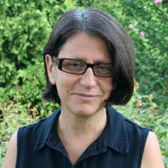
Lorraine Mangione, Ph.D.
Professor, Clinical Psychology and Director of Practica, Clinical Psychology, Antioch University New England
Lorraine Mangione, BA, Duke University and PhD, University of Kansas, is a professor and Director of Practica in the Department of Clinical Psychology at Antioch University New England in Keene, New Hampshire. She has been involved with NCSPP for about 30 years, working on different committees and presenting on various topics. Research, training, and clinical interests have focused on supervision, mentoring, creativity and artistry, group therapy, spirituality and religion, aging, loss and grief, Italian American culture, and #MeToo. Published works include Daughters, Dads, and the Path through Grief: Tales from Italian America., and articles on the intersect of Bruce Springsteen’s work and psychology.
Session

Rachel Casas, Ph.D.,
Associate Professor and Program Director, PsyD Program in Clinical Psychology, California Lutheran University
Session
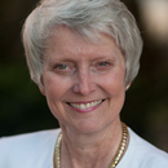
Jana Martin, Ph.D.
Chief Executive Officer, The Trust
Dr. Jana N. Martin received her Master's and Doctor of Philosophy degrees from the University of Mississippi and completed a Child-Specialty internship at Duke University Medical Center.
She has held various positions since becoming a psychologist. Some of her proudest accomplishments include establishing, designing, and directing both the first adolescent boys' group home and the first adolescent inpatient psychiatric unit in the State of Mississippi; directing the Office of Human Resources for the Mississippi Department of Mental Health; serving as the Chief Psychologist for the Psychiatric Clinic for Youth at Memorial Children's Hospital; and teaching at California State University at Long Beach and Pepperdine.
For over 20 years, Dr. Martin maintained a successful private practice in which she saw both children and adults; consulted to numerous nursery, elementary, and middle schools in the Long Beach area; conducted training programs with groups throughout the State of California; served on the Torrance Superior Court Child Custody Panel; and served as an expert witness in legal cases. She has been active in community activities and philanthropies such as Soroptimist International of Long Beach, CA, and Memorial Children's Dental Clinic.
Additionally, she has been involved as a member and leader in professional associations, having served as an American Psychological Association (APA) Public Education Campaign Coordinator in California, President of the Los Angeles County Psychological Association, President of the California Psychological Association, and President of APA's Division 42, the Division of Independent Practice. She has been recognized for her work by the California Psychological Association with an award for Distinguished Contributions to the Profession of Psychology, by the American Psychological Association with a Presidential Citation for exemplary work as a modern-day practitioner, and she is a recipient of the Rosalee G. Weiss Award for Outstanding Leaders in Psychology.
Dr. Martin was elected to the American Psychological Association Insurance Trust's Board of Trustees in January 2006. After serving as a Trustee for four plus years, she joined The Trust in January 2010 as Chief Operating Officer and Chief of Staff. In December the same year, she became Chief Executive Officer.
Dr. Martin brings to The Trust a strong background in executive management and governance acquired through her experience in independent practice, leadership roles in behavioral health settings, comprehensive study of insurance solutions for psychologists, and stewardship of The Trust's insurance and risk management programs.
She has held various positions since becoming a psychologist. Some of her proudest accomplishments include establishing, designing, and directing both the first adolescent boys' group home and the first adolescent inpatient psychiatric unit in the State of Mississippi; directing the Office of Human Resources for the Mississippi Department of Mental Health; serving as the Chief Psychologist for the Psychiatric Clinic for Youth at Memorial Children's Hospital; and teaching at California State University at Long Beach and Pepperdine.
For over 20 years, Dr. Martin maintained a successful private practice in which she saw both children and adults; consulted to numerous nursery, elementary, and middle schools in the Long Beach area; conducted training programs with groups throughout the State of California; served on the Torrance Superior Court Child Custody Panel; and served as an expert witness in legal cases. She has been active in community activities and philanthropies such as Soroptimist International of Long Beach, CA, and Memorial Children's Dental Clinic.
Additionally, she has been involved as a member and leader in professional associations, having served as an American Psychological Association (APA) Public Education Campaign Coordinator in California, President of the Los Angeles County Psychological Association, President of the California Psychological Association, and President of APA's Division 42, the Division of Independent Practice. She has been recognized for her work by the California Psychological Association with an award for Distinguished Contributions to the Profession of Psychology, by the American Psychological Association with a Presidential Citation for exemplary work as a modern-day practitioner, and she is a recipient of the Rosalee G. Weiss Award for Outstanding Leaders in Psychology.
Dr. Martin was elected to the American Psychological Association Insurance Trust's Board of Trustees in January 2006. After serving as a Trustee for four plus years, she joined The Trust in January 2010 as Chief Operating Officer and Chief of Staff. In December the same year, she became Chief Executive Officer.
Dr. Martin brings to The Trust a strong background in executive management and governance acquired through her experience in independent practice, leadership roles in behavioral health settings, comprehensive study of insurance solutions for psychologists, and stewardship of The Trust's insurance and risk management programs.
Session

Michelle Martinez, MA
Michelle Martinez is currently first generation, Afro-Latinx doctoral candidate in Clinical Psychology at Midwestern University in Downers Grove, IL. Throughout her clinical and professional experiences, she has worked to empower communities of color in various settings via psychoeducational workshops, therapy, and research. On a macro level, she has made systematic efforts to enhance the recruitment and retention of graduate students of color within psychology doctoral programs through her membership as Diversity Task Force in her clinical psychology program and co-founding the NCSPP Student of Color Council. Michelle understands the call to decolonize graduate education and believes the feedback of students of color can play an integral role in that change.
Session

Claudia Miranda, MA
Claudia Miranda is currently in her internship year in the Clinical Psychology doctoral program at The Wright Institute in Berkeley, CA. As a first-generation student and daughter of Chilean immigrants, Claudia is passionate about amplifying the voices of historically silenced communities in both her clinical and professional work. Claudia's advocacy efforts include aiding in the development of recruitment and retention initiatives for historically underrepresented students, enhancing the support and training of Latinx clinicians, and co-founding the NCSPP Student of Color Council. Throughout her training experiences, Claudia has learned to draw strength from her community cultural wealth and strives to empower others to do the same.
Session

Tina Armstrong, Ph.D.
Director of Clinical Training and Associate Professor of Clinical Psychology, Clinical Psychology Department, Fuller Theological Seminary
Tina Armstrong joined the School of Psychology faculty in July 2015, she is the Director of Clinical Training and associate professor of clinical psychology at Fuller Graduate School of Psychology.
Armstrong is the principal investigator of the Black Women's Spirituality Research Lab, which conducts research that collaborates with African American women and women of African Descent in efforts to understand issues related to spirituality and well-being.
As a community psychologist, she has a strong commitment to bridging the gap between academia and historically underserved communities by facilitating the training and development of students. Armstrong holds that effective education does more than simply educate students—it also acts as a conduit that helps to create, sustain, and improve our communities.
As a licensed clinical psychologist, Armstrong has a clinical practice that focuses on the mental health and wellbeing of Black women. Armstrong is a novice gardener who enjoys 'playing' in nature.
Armstrong is the principal investigator of the Black Women's Spirituality Research Lab, which conducts research that collaborates with African American women and women of African Descent in efforts to understand issues related to spirituality and well-being.
As a community psychologist, she has a strong commitment to bridging the gap between academia and historically underserved communities by facilitating the training and development of students. Armstrong holds that effective education does more than simply educate students—it also acts as a conduit that helps to create, sustain, and improve our communities.
As a licensed clinical psychologist, Armstrong has a clinical practice that focuses on the mental health and wellbeing of Black women. Armstrong is a novice gardener who enjoys 'playing' in nature.
Session

Alette Coble-Temple, Psy.D.
Dr. Alette Coble-Temple is a licensed clinical psychologist for the California Department of State Hospitals and Director of Clinical Training for the JFK School of Psychology, PsyD Program at National University (NU).
She is currently Chair for the Board of Advancement of Psychology in the Public Interest (BAPPI) for the American Psychological Association (APA). She previously served as the Chair for the Committee on Women in Psychology (2017-18) and Committee for Disability Issues in Psychology (2000-2004). Her cultural-responsive leadership style promotes innovative academic and training structures to strengthen accessibility and effectiveness of psychological services across populations.
Dr. Coble-Temple was crowned Ms. Wheelchair America 2016 for her lifetime advocacy efforts for people with disabilities. Her professional advocacy is in the public interest areas of disability, criminal justice reform, racism, gender equality, and healthcare disparities leading her to serve on multiple boards and committees at the national and state levels.
She is currently Chair for the Board of Advancement of Psychology in the Public Interest (BAPPI) for the American Psychological Association (APA). She previously served as the Chair for the Committee on Women in Psychology (2017-18) and Committee for Disability Issues in Psychology (2000-2004). Her cultural-responsive leadership style promotes innovative academic and training structures to strengthen accessibility and effectiveness of psychological services across populations.
Dr. Coble-Temple was crowned Ms. Wheelchair America 2016 for her lifetime advocacy efforts for people with disabilities. Her professional advocacy is in the public interest areas of disability, criminal justice reform, racism, gender equality, and healthcare disparities leading her to serve on multiple boards and committees at the national and state levels.
Session

Erin Liebich, Psy.D.
Owner, The Center for Personal Growth
Erin M Liebich, Psy.D. is a Licensed Clinical Psychologist and owner of the Center for Personal Growth, PLLC, a group practice in the western suburbs of Chicago specializing in children, adolescents, and adults with disabilities.
Dr. Liebich received her doctorate in clinical psychology from the Illinois School of Professional Psychology at Argosy University - Schaumburg in 2010.
Dr. Liebich identifies as a disability advocate, educator, assessor, and treatment provider. She offers doctoral internship and practicum training to graduate students in psychology.
From 2017-2019, Dr. Liebich served on the APA Committee for Disability Issues in Psychology (CDIP), acting as the CDIP Chair in 2018. She is also the current Co-Chair for the Division 35 Disability Committee and a Member of the National Council of Schools and Programs of Professional Psychology (NCSPP) Disability Committee.
Dr. Liebich received her doctorate in clinical psychology from the Illinois School of Professional Psychology at Argosy University - Schaumburg in 2010.
Dr. Liebich identifies as a disability advocate, educator, assessor, and treatment provider. She offers doctoral internship and practicum training to graduate students in psychology.
From 2017-2019, Dr. Liebich served on the APA Committee for Disability Issues in Psychology (CDIP), acting as the CDIP Chair in 2018. She is also the current Co-Chair for the Division 35 Disability Committee and a Member of the National Council of Schools and Programs of Professional Psychology (NCSPP) Disability Committee.
Session

Megan Carlos, Ph.D.
Megan Carlos, PhD, is an Associate Professor with the California School of Professional Psychology (CSPP) of Alliant International University.
Dr. Carlos received her MA in Child Psychology and her PhD in Child Clinical Psychology from the University of Minnesota at Twin Cities.
She has taught undergraduate and graduate courses in developmental and clinical psychology over the past 15 years. She has a private practice in Berkeley, California.
Dr. Carlos has previously served on the American Psychological Association’s Committee on Disability Issues in Psychology and currently serves as the Vice Chair for NCSPP’s Disability Committee.
Dr. Carlos received her MA in Child Psychology and her PhD in Child Clinical Psychology from the University of Minnesota at Twin Cities.
She has taught undergraduate and graduate courses in developmental and clinical psychology over the past 15 years. She has a private practice in Berkeley, California.
Dr. Carlos has previously served on the American Psychological Association’s Committee on Disability Issues in Psychology and currently serves as the Vice Chair for NCSPP’s Disability Committee.
Sessions

Lyuba Bobova, Ph.D.
Associate Department Chair and Associate Professor, Clinical Psychology, Adler University
Session
Jennifer R. Linderoth, MA
Alliant International University / San Francisco, CA
Session
Karen Ann F. Horr, MA
Alliant International University / San Francisco, CA
Session

Leah Horvath, Ph.D.
Associate Professor Program Director, Illinois School of Professional Psychology, National Louis University
Session
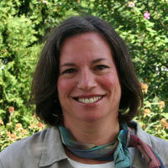
Kathi A. Borden, Ph.D.
Professor, Clinical Psychology, Antioch University New England
Dr. Borden received her doctorate in clinical psychology from the University of Illinois at Urbana-Champaign, and completed her APA accredited internship at Ravenswood Medical Center in Chicago. Dr. Borden has interests in child, couple, and family problems and their treatment; sexual orientation and gender identity; legislative advocacy; and school consultation, particularly the potential therapeutic and social justice impact of school personnel and policies. Dr. Borden’s publications and presentations include work on mentoring; families of gender nonconforming children; women’s development; professional psychology education and training including competencies and the assessment of competence; child and parenting issues; internship issues; and program accreditation. She is serving a six-year term as Editor of the APA journal Professional Psychology: Research and Practice, for which she previously served as Associate Editor for six years. As Associate Editor, she edited special sections on LGBT parenting (August, 2014), transgender issues (February, 2015), and contemporary assessment practice (June and August, 2017). As Editor, she is coediting a special issue on substance use disorders and addictions. Dr. Borden also serves as a Consulting Editor for the APA journal Training and Education in Professional Psychology.
Dr. Borden was president of the National Council of Schools and Programs of Professional Psychology for 2000-2001, where she previously served as chair of the Education and Training Committee, chair of the Gender Issues Committee (now called the Women’s Issues Committee), and chair of a national conference on preparing psychology practitioners for the new millennium. Dr. Borden has served on steering committees for numerous conferences, including the 2002 Competencies Conference in Professional Psychology and the 2005 Half-time Internship Conference. She is a site visit chair for the American Psychological Association, and consults with programs across the country on program development, curriculum, leadership, program policies, and accreditation.
Dr. Borden has developed programs for parent education, school and parent consultation, and stress and coping at the Antioch Psychological Services Center, where she serves as a clinical supervisor and leads a live consultation/family therapy seminar. She is interested in integrative-interpersonal approaches to therapy. Pursuing her interest in public policy and legislative advocacy, she is the Northern New England Federal Advocacy Coordinator (FEDAC) for APA’s Education Directorate, and visits New Hampshire’s congressional delegation regularly to advocate for federal programs related psychology education and graduate training. She received the American Psychological Association Board of Educational Affairs’ Education Advocacy Award in 2007, and an NCSPP special presidential recognition for her contributions to Professional Psychology Education and Training in 2020.
Prior to joining the Antioch University New England faculty, Dr. Borden was Professor of Psychology and Director of the PsyD Program at Pepperdine University, and supervised psychology and social work students at the AIDS Service Center in Pasadena, California where she also developed mental health programs for parents. Prior to that, she was Assistant Professor of Psychology at Roosevelt University in Chicago. She is a licensed psychologist in New Hampshire.
Dr. Borden was president of the National Council of Schools and Programs of Professional Psychology for 2000-2001, where she previously served as chair of the Education and Training Committee, chair of the Gender Issues Committee (now called the Women’s Issues Committee), and chair of a national conference on preparing psychology practitioners for the new millennium. Dr. Borden has served on steering committees for numerous conferences, including the 2002 Competencies Conference in Professional Psychology and the 2005 Half-time Internship Conference. She is a site visit chair for the American Psychological Association, and consults with programs across the country on program development, curriculum, leadership, program policies, and accreditation.
Dr. Borden has developed programs for parent education, school and parent consultation, and stress and coping at the Antioch Psychological Services Center, where she serves as a clinical supervisor and leads a live consultation/family therapy seminar. She is interested in integrative-interpersonal approaches to therapy. Pursuing her interest in public policy and legislative advocacy, she is the Northern New England Federal Advocacy Coordinator (FEDAC) for APA’s Education Directorate, and visits New Hampshire’s congressional delegation regularly to advocate for federal programs related psychology education and graduate training. She received the American Psychological Association Board of Educational Affairs’ Education Advocacy Award in 2007, and an NCSPP special presidential recognition for her contributions to Professional Psychology Education and Training in 2020.
Prior to joining the Antioch University New England faculty, Dr. Borden was Professor of Psychology and Director of the PsyD Program at Pepperdine University, and supervised psychology and social work students at the AIDS Service Center in Pasadena, California where she also developed mental health programs for parents. Prior to that, she was Assistant Professor of Psychology at Roosevelt University in Chicago. She is a licensed psychologist in New Hampshire.
Session

Diana M. Concannon, Psy.D.
NCSPP Past President / Associate Provost, Strategic Initiatives and Partnerships; Associate Professor, California School of Forensic Psychology, Alliant International University
Diana M. Concannon, PsyD, is Associate Provost for Strategic Initiatives and Partnerships at Alliant International University, Associate Professor at the California School of Forensic Psychology, and Director of the APA-Accredited California Psychology Internship Consortium. To each of these positions, she brings more than 25 years of executive leadership experience to support the development and delivery of quality, practical, and accessible education in various mental health disciplines.
She complements this work with a forensic assessment practice, and a threat assessment and management consultancy.
She is a forensic psychologist, licensed to practice in California, New York, Utah, and Washington D.C., a Professional Certified Investigator by the American Society for Industrial Security, a Rape Escape Instructor, and a Loyola Law School-trained Mediator.
She is the author of Kidnapping: An Investigator's Guide, and the forthcoming Neurocriminology: Forensic and Legal Applications, Public Policy Implications.
She complements this work with a forensic assessment practice, and a threat assessment and management consultancy.
She is a forensic psychologist, licensed to practice in California, New York, Utah, and Washington D.C., a Professional Certified Investigator by the American Society for Industrial Security, a Rape Escape Instructor, and a Loyola Law School-trained Mediator.
She is the author of Kidnapping: An Investigator's Guide, and the forthcoming Neurocriminology: Forensic and Legal Applications, Public Policy Implications.
Session

Shannon Chávez-Korell, Ph.D.
Dean, Academic Programs and Program Director, Michigan School of Psychology
Dr. Chávez-Korell joined the Michigan School of Psychology as a Core Faculty member in August 2017. Prior to joining the Michigan School, Dr. Chávez-Korell was an Associate Professor in the Department of Educational Psychology at the University of Wisconsin-Milwaukee for 10-years.
Her research focuses on poverty-related stress, racial and ethnic identity development, and extends to cultural adaptations of mental health interventions. Her interests also include transgender identity and affirmative psychotherapy with transgender clients.
In 2015, she and her research colleagues received The Outstanding Contribution of the Year Award from the American Psychological Association’s Division 17 The Counseling Psychologist for their research focused on Latino Ethnic Identity.
In addition to teaching, research, and service, she is actively involved in professional consultation. Her consultation work is focused on issues of diversity and inclusion, specifically access and barriers to education for marginalized populations, educational equity, and school climate.
Dr. Chávez-Korell currently serves on the editorial boards for the Journal of Counseling Psychology and Journal of Latina/o Psychology.
Her research focuses on poverty-related stress, racial and ethnic identity development, and extends to cultural adaptations of mental health interventions. Her interests also include transgender identity and affirmative psychotherapy with transgender clients.
In 2015, she and her research colleagues received The Outstanding Contribution of the Year Award from the American Psychological Association’s Division 17 The Counseling Psychologist for their research focused on Latino Ethnic Identity.
In addition to teaching, research, and service, she is actively involved in professional consultation. Her consultation work is focused on issues of diversity and inclusion, specifically access and barriers to education for marginalized populations, educational equity, and school climate.
Dr. Chávez-Korell currently serves on the editorial boards for the Journal of Counseling Psychology and Journal of Latina/o Psychology.
Session
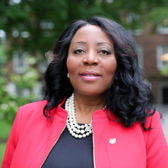
Francine Conway, Ph.D.
Chancellor-Provost, Rutgers University- New Brunswick, The State University of New Jersey
Francine Conway, an internationally recognized child psychologist, was appointed the first chancellor-provost of Rutgers University–New Brunswick on July 1, 2021, which combines elements of the chancellor's portfolio with those of the provost's to establish a clear focus on academic excellence for students and faculty. She also serves as a Distinguished Professor.
Dr. Conway had served as provost and executive vice chancellor for academic affairs since November 2020. As provost, she embraced a commitment to building a diverse and inclusive environment for faculty, staff, and students, including recruitment of faculty from underrepresented demographics and ensuring pathways to success for talented students from diverse and at-risk backgrounds.
As dean of the Graduate School of Applied and Professional Psychology, Conway has emphasized creating an academic home where all members know they belong so they can achieve their goals.
Chancellor-Provost Conway has provided leadership for schools and professional psychology programs through the National Council of Schools and Programs of Professional Psychology (NCSPP). As president, she led a campaign to enhance the curriculum in preparing psychologists to lead social change. Dr. Conway now serves as the Immediate Past-President for NCSPP. She has also served as a Big Ten Liaison representing Rutgers University at two Big Ten academic leadership programs—Academic Leadership Program (ALP) and Department Executive Officer (DEO) Program.
Chancellor-Provost Conway is a graduate of Cornell University and Columbia University and earned her doctoral degree from the Gordon F. Derner Institute of Advanced Psychological Studies at Adelphi University, where she later served on the faculty for 13 years.
Dr. Conway had served as provost and executive vice chancellor for academic affairs since November 2020. As provost, she embraced a commitment to building a diverse and inclusive environment for faculty, staff, and students, including recruitment of faculty from underrepresented demographics and ensuring pathways to success for talented students from diverse and at-risk backgrounds.
As dean of the Graduate School of Applied and Professional Psychology, Conway has emphasized creating an academic home where all members know they belong so they can achieve their goals.
Chancellor-Provost Conway has provided leadership for schools and professional psychology programs through the National Council of Schools and Programs of Professional Psychology (NCSPP). As president, she led a campaign to enhance the curriculum in preparing psychologists to lead social change. Dr. Conway now serves as the Immediate Past-President for NCSPP. She has also served as a Big Ten Liaison representing Rutgers University at two Big Ten academic leadership programs—Academic Leadership Program (ALP) and Department Executive Officer (DEO) Program.
Chancellor-Provost Conway is a graduate of Cornell University and Columbia University and earned her doctoral degree from the Gordon F. Derner Institute of Advanced Psychological Studies at Adelphi University, where she later served on the faculty for 13 years.
Session
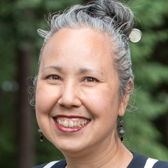
Leihua Edstrom, Ph.D., ABSNP
NCSPP President-Elect / Professor, College of Social & Behavioral Sciences, Doctoral Program Counseling Psychology, Northwest University
Leihua Edstrom, PhD, ABSNP is a faculty member in the Doctoral Program in Counseling Psychology at Northwest University, Kirkland, WA where she has taught for the past seven years. Drawing on her background as a school psychologist and researcher of school-based prevention programs, she teaches research methodology, lifespan psychology, and cognitive-affective processes underlying behavior. Leihua will be transitioning to George Fox University in August 2022, where she will join the faculty in the Clinical Psychology program.
Her current research projects include marriage enrichment for military couples, psychologists’ posttraumatic growth during the COVID-19 pandemic, and gender identity development of transgender youth. She maintains a private practice in Mill Creek, Washington.
Her current research projects include marriage enrichment for military couples, psychologists’ posttraumatic growth during the COVID-19 pandemic, and gender identity development of transgender youth. She maintains a private practice in Mill Creek, Washington.
Session

Priscilla Dass-Brailsford, Ed.D., MPH
Chair, Women's Issues Committee / Chair, Professor, Clinical PsyD, The Chicago School of Professional Psychology, Washington DC
Priscilla Dass-Brailsford, a native of South Africa, is Chair and Professor in the Clinical PsyD program at TCSPP. In the past, she was faculty at Lesley University's Division of Counseling Psychology in Cambridge, Massachusetts, Boston College and a research faculty member in the Department of Psychiatry at Georgetown University. She studies the effects of trauma, specifically community violence, and other stressful events and is interested in whether individuals from historically oppressed or stigmatized groups experience unique stressors or exhibit culturally specific coping processes.
Dr.Dass-Brailsford has several ongoing research projects on ethnocultural violence, community violence, HIV and trauma, homelessness and trauma, and national and international disasters. Prior to moving to DC, she taught for several years and coordinated a Community Crisis Response Team for the Victims of Violence program at Cambridge Health Alliance in MA that responded to affected communities in the aftermath of violence and trauma. Besides numerous other publications, she is the published author of three books: A Practical Approach to Trauma: Empowering Interventions (2007) and Crisis Disaster Counseling: Lessons Learned from Hurricane Katrina (2009), and most recently Trauma, Violence, and Abuse with Ethnic Populations (2020). Dr. Dass-Brailsford has presented both nationally and internationally and PTSD expert for the legal system.
Dr.Dass-Brailsford has several ongoing research projects on ethnocultural violence, community violence, HIV and trauma, homelessness and trauma, and national and international disasters. Prior to moving to DC, she taught for several years and coordinated a Community Crisis Response Team for the Victims of Violence program at Cambridge Health Alliance in MA that responded to affected communities in the aftermath of violence and trauma. Besides numerous other publications, she is the published author of three books: A Practical Approach to Trauma: Empowering Interventions (2007) and Crisis Disaster Counseling: Lessons Learned from Hurricane Katrina (2009), and most recently Trauma, Violence, and Abuse with Ethnic Populations (2020). Dr. Dass-Brailsford has presented both nationally and internationally and PTSD expert for the legal system.
